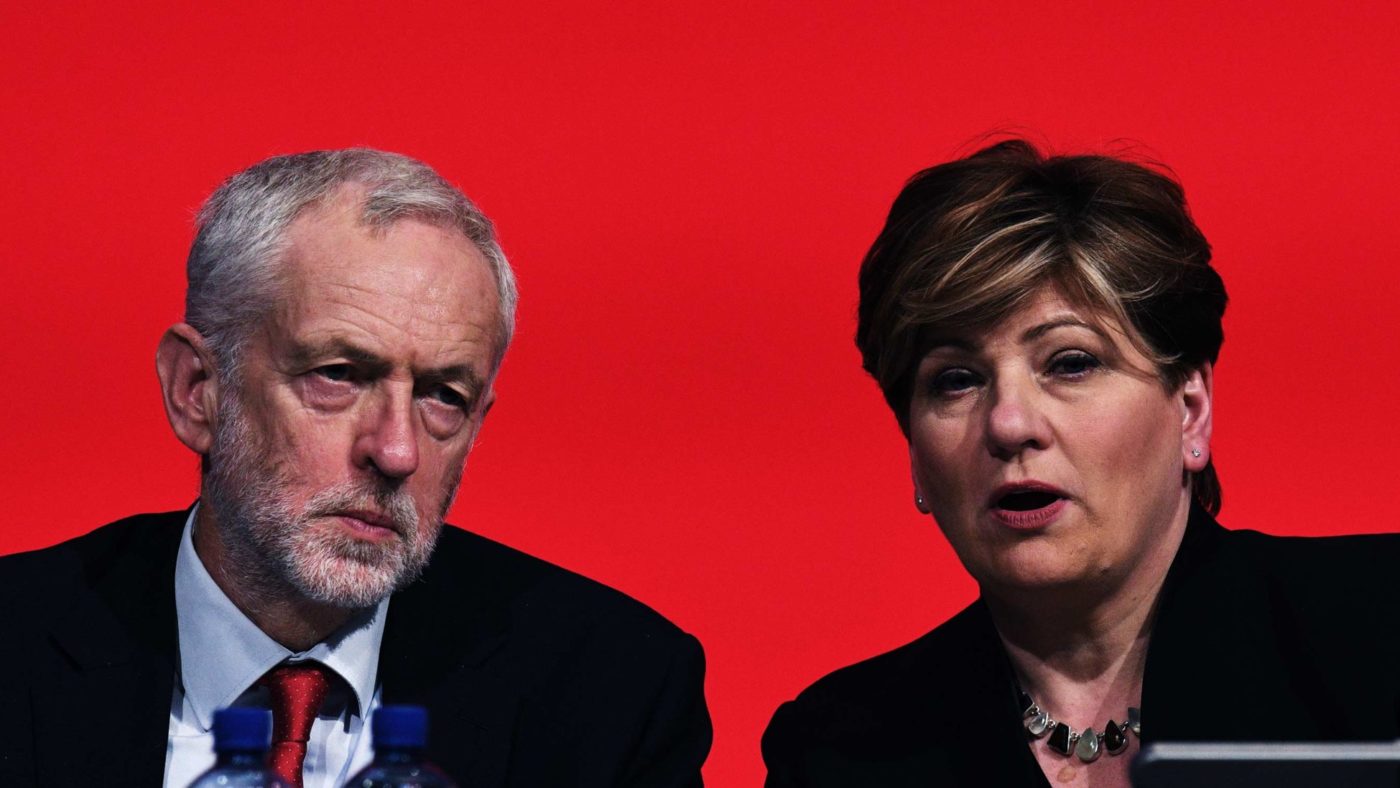The hubris and vaulting ambition of New Labour were epitomised, according to popular political mythology, in its commitment to an ethical foreign policy. What role did this apparently unbounded meddling, asked critics, leave for national self-interest? Yet the image is based on a misquotation. In his famed speech in 1997 on taking office as foreign secretary, Robin Cook declared: “Our foreign policy must have an ethical dimension and must support the demands of other peoples for the democratic rights on which we insist for ourselves.”
That was the right balance. Britain couldn’t do everything but it had a moral responsibility to counter the most egregious cases of repression. As foreign secretary, Cook was crucial in forming Nato’s response to the genocidal campaign of aggression by Slobodan Milosevic in Kosovo.
Despite being widely trailed (not least by herself) as asserting a consistent approach to human rights abuses, Emily Thornberry, the shadow foreign secretary, did not emulate Cook’s stance when she delivered a speech today on foreign policy under a Corbyn government. On the contrary, Ms Thornberry exemplified the confusion and amorality of a Labour Party that has become unmoored from the ideals of liberal-democratic internationalism.
Ms Thornberry said that, under a Labour government, there would be “no indulgence of human rights abuses because they are committed by less powerful countries, or by governments who call themselves ‘socialist’ but who, by their actions, betray every socialist ideal”.
In advance of her speech, commentators interpreted this as a veiled swipe against Mr Corbyn’s longstanding sympathies with the revolutionary regime of Nicolas Maduro in Venezuela. In reality, it was a muddled bromide. Ms Thornberry made clear in questions after her speech that she did not support the position of Britain and seven other European countries in recognising Juan Guaido as interim president. Instead, she called for “dialogue”.
That’s a feeble position. Venezuela is an unlikely defining issue in British politics but it matters for two reasons. First, its people are suffering a catastrophic collapse of living standards and a savage crackdown on political opposition, and these are the handiwork of a regime that as late as 2013 Mr Corbyn was proclaiming as “an inspiration to all of us fighting back against austerity and neoliberal economics in Europe”. Austerity? Since Mr Corbyn proffered that judgment, Venezuela has suffered a collapse of almost 40 per cent in real per capita incomes. That isn’t a natural disaster: it’s the outcome of price and exchange controls, inflationary public financing, expropriation and corruption.
Second, dialogue presupposes that an issue is susceptible to resolution through compromise between equally legitimate claims and arbitration between remediable grievances. Some geopolitical issues really are like that: the Israel-Palestine conflict must eventually be settled by mutual recognition of Palestinians’ just demand for statehood and Israelis’ requirement for security. Yet Venezuela is not like that at all. It’s instead a case of a brutal kleptocracy repressing a popular rebellion, which is expressed through a democratic assembly. Mr Guaido is even a member of a sister party of the Labour Party, recognised as such by the Socialist International. Labour should be expressing solidarity with the people’s cause, not temporising about it.
Sadly, while Ms Thornberry made some acute criticisms of the current government, she was unable to break free of the insular and dogmatic instincts of her party’s leadership. It’s absolutely right to criticise the Foreign Office under Theresa May’s government for its subjection of state policy to the quixotic search for preferential trade partners after Brexit.
Yet the instincts of Mr Corbyn and his wing of Labour opinion have never been to disinterestedly uphold human rights. They are instead expressed in hostility to western foreign policy regardless of the merits of the issue.
Most shamefully, Mr Corbyn signed an Early Day Motion in 2004 commending a column in the New Statesman by the credulous polemicist John Pilger. The motion repeated many false claims about the Balkans and “congratulate[d] John Pilger on his expose of the fraudulent justifications for intervening in a ‘genocide’ that never really existed in Kosovo”.
To be fair, Ms Thornberry indicated that Cook rather than Corbyn was right on the issue of intervention to stop genocide, but she should have unhesitatingly denounced her leader’s denial of atrocious crimes. It was only because of Nato’s 78-day bombing campaign in 1999 that Kosovan Muslims were collectively spared a horrific fate; even then, 300,000 of them had been expelled from their homes by Milosevic’s forces before Nato belatedly intervened.
Labour has never before been dominated by its far left but the closest of its leaders to Corbyn’s stance was George Lansbury. He presided over a disastrous period in the party’s history, from 1931 to 1935, when conference carried resolutions that urged the renunciation of military force altogether. In 1933, the year of Hitler’s accession to power, Labour’s conference called fantastically for “the total disarmament of all nations throughout the world and the creation of an International Police Force”. Nations throughout the world unaccountably failed to follow this exhortation.
Lansbury’s Labour was unfit for office as it did not understand the nature of evil and the limits of diplomacy. To maintain his illusions, Lansbury ended up trying to see the purported justice in Nazi territorial demands on Czechoslovakia.
Corbyn too sees the adversaries of western democracies as more sinned against than sinning. That instinct shades easily into a reflexive stance that is anti-American, anti-British and – not at all coincidentally — anti-Semitic. That’s where Mr Corbyn’s politics have ended up. A shadow foreign secretary who is consistent with Labour’s postwar traditions of Atlanticism and internationalism should say so. Ms Thornberry is not of that type, and her party is no longer of that tradition.


